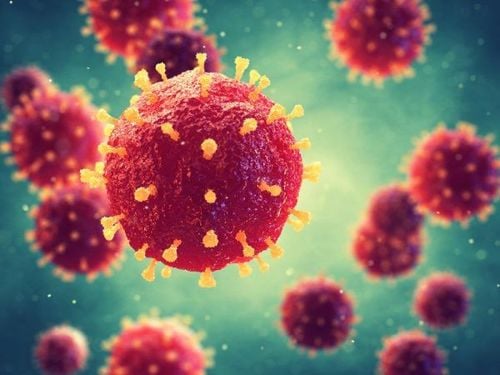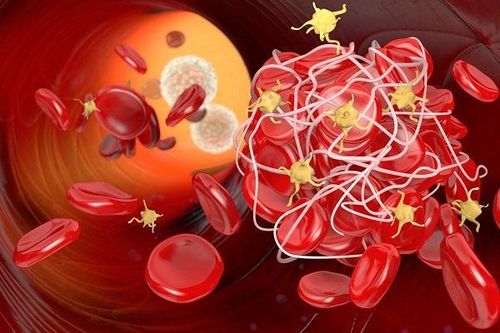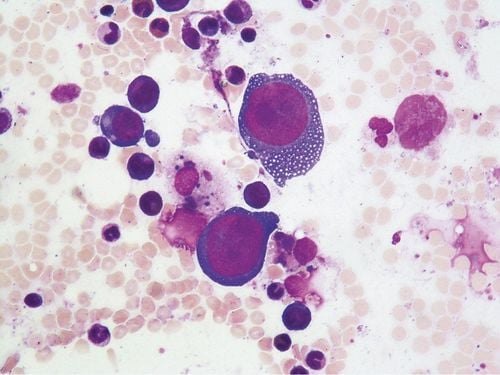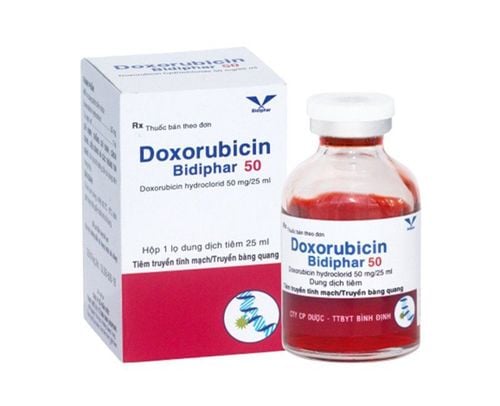This is an automatically translated article.
The article was professionally consulted by a Doctor of Cardiology - Thoracic Surgery, Vinmec Central Park International General Hospital.Acute viral myocarditis causes severe myocardial damage. The disease progresses rapidly, if not promptly detected and intervened, it can be life-threatening, or leave irreversible damage.
1. What is acute viral myocarditis?
Viral acute myocarditis is inflammation, necrosis, or lysis of myocardial cells caused by viruses. Among the causes of myocarditis, viral infections are the most common.This pathological process affects the myocardium with or without systemic symptoms. The most common presentation is heart failure, but sometimes arrhythmia or sudden death is the first manifestation of the disease.
2. Causes of viral myocarditis
Common viruses that cause myocarditis include:Adenovirus: Adenovirus is one of the most common viruses that cause acute myocarditis in both children and adults. The virus also commonly causes respiratory infections, sometimes cystitis and gastrointestinal infections. Adenovirus is mainly transmitted through the respiratory tract when a healthy person comes into contact with secretions from the nose and throat of an infected person.
Cytomegalovirus (CMV): This group of viruses includes the herpes simplex viruses, the varicella-zoster virus (which causes chickenpox and shingles), and the Epstein-Barr virus. Usually CMVs can stay in the body but stay dormant and harmless, however sometimes they can cause infections of organs, including myocarditis. These viruses are spread through direct contact with bodily fluids of an infected person. In addition, they can also be transmitted from mother to child during pregnancy.
Coxsackievirus B: This virus is the leading cause of acute viral myocarditis, accounting for about half of acute myocarditis cases in the United States. Coxsackievirus B can cause flu or attack the heart, leading to an infection that lasts about 2 to 10 days.
The disease is not usually fatal but can result in permanent damage to the heart muscle, especially if there is a second recurrence. This virus is transmitted through feces, so one of the most effective ways to prevent infection is to always wash your hands and improve your daily hygiene habits.
Enteric Cytopathic Human Orphan Virus (ECHO): This is a family of viruses that mainly cause digestive infections and skin rashes. In some cases, this virus can cause acute myocarditis. The route of transmission of the virus is through contact with the feces of an infected person, or by inhaling respiratory droplets suspended in the air from an infected person.
Human parvovirus B19: This virus can be the cause of acute myocarditis. The route of transmission of the virus is through saliva and respiratory secretions. Washing your hands and covering your nose and mouth when coughing and sneezing can help reduce the spread of the virus.
Rubella: The virus that causes rubella (or German measles) is also one of the causes of acute myocarditis. Pregnant women infected with rubella often experience complications such as miscarriage, stillbirth and birth defects in the fetus. When the virus enters the heart, it can cause acute myocarditis. There is now a rubella vaccine that is recommended for all women before becoming pregnant.

Virus gây bệnh rubella (hay bệnh sởi Đức) cũng là một trong những nguyên nhân gây viêm cơ tim cấp
3. Signs of acute viral myocarditis
In the early stages, the symptoms are not clear, often showing a viral infection such as fever, sore throat, body aches, muscle aches, fatigue, digestive disorders, vomiting, diarrhea.In the later stages, symptoms of myocarditis appear, such as:
Severe chest pain, shortness of breath during strenuous activity or even at rest. Low blood pressure, weak pulse. Thrill, palpitations. Auscultation of the heart can be heard galloping, systolic murmur at the apex of the heart due to the dilation of the left ventricular chamber causing functional mitral regurgitation. When myocarditis spreads, it can cause heart failure with manifestations such as:
Arrhythmia: Heart palpitations or irregular heartbeat. Shortness of breath at rest or during physical activity. Fluid retention causes swelling in the legs, ankles, and feet. Fatigue, feeling powerless not wanting to move limbs, feeling very tired when active.
4. How dangerous is acute viral myocarditis?

Viêm cơ tim cấp do virus có thể làm hình thành các cục máu đông trong tim
Formation of blood clots in the heart. When a blood clot moves, it can cause an embolism (cerebral stroke, myocardial infarction, pulmonary embolism...). Cardiac arrhythmias: Extrasystoles, conduction block, tachycardia... Syncope due to lack of blood supply to organs. Sudden death. In very severe, life-threatening cases leading to heart failure due to myocarditis, an artificial heart replacement or heart transplant is required. Prognosis depends on each subject:
Acute viral myocarditis in neonates has a rather poor prognosis, the mortality rate is up to 75%. Patients with milder symptoms may have a good prognosis, with complete recovery in some cases. Older children with dilated cardiomyopathy due to viral causes are also not very good. These patients continue to present with myocardial dilatation, fibrosis, and functional deterioration of the myocardium. In adults, 5-10% of patients recover on their own. However, up to 50% of patients die within 2 years and 80% of patients die within 8 years without a heart transplant. Understanding myocarditis helps people not to let their guard down against common viral infections that cause respiratory illness, as they can also cause myocarditis.
Master. Doctor Nguyen Duc Hien has more than 12 years of experience in the field of cardiology, especially Cardiovascular and thoracic surgery. Currently, he is a Doctor of Cardiology Surgery, Cardiovascular Center, Vinmec Central Park International General Hospital.
Please dial HOTLINE for more information or register for an appointment HERE. Download MyVinmec app to make appointments faster and to manage your bookings easily.













